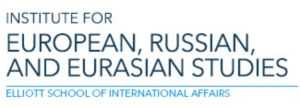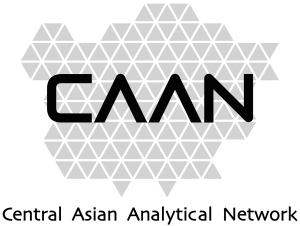Interview with

Niva Yau
Niva Yau is a resident researcher at the OSCE Academy in Bishkek and a fellow at the Foreign Policy Research Institute in Philadelphia. Her work focuses on China’s foreign policy, trade, and security postures on its western periphery, including Central Asia and Afghanistan. Originally from Hong Kong, Ms. Yau has been based in Bishkek, Kyrgyzstan, since 2018, and was recently awarded the Albie award for the best political economy writing in 2020 by The Washington Post.
China’s presence in Central Asia is mainly viewed through the prism of economic cooperation. Its political influence in the region, meanwhile, is not often considered. But Niva Yau, a research fellow at the OSCE Academy in Bishkek, believes Beijing has long asserted its political presence in the region.
China’s presence in Central Asia is mainly viewed through the prism of economic cooperation. Its political influence in the region, meanwhile, is not often considered. Can we already say that Beijing is exerting political influence on the Central Asian countries? Is there evidence that China is building closer ties with the political elites of Central Asia?
The political influence has been there since the beginning. In fact, economic cooperation is one way of inducing this political influence, working with businesses related to the political elites and keeping the political elites happy—cultivating a rent-seeking culture among the political leaders. This is the main reason why there is consensus support in Central Asia for China’s anti-separatism activities in Xinjiang against the Uyghurs.
China began building these political ties very early. In the 1990s and early 2000s, a lot of Central Asian leaders visited China regularly, at least once per year, on official visits or simply for vacation. Long-term leaders like Nazarbayev and Rahmon are known to have visited the famous traditional Chinese medicine resort in Sanya, Hainan province, which is a tourism hub catering to Russian-speaking tourists. On top of this, since the early 2000s, there have been many Chinese-sponsored training programs that support Central Asian officials who wish to visit and train in China. These trips are very luxurious, showing how successful China is, how Central Asian officials can adopt these policies, etc. They have been very influential: “smart cities”/Huawei’s surveillance regime, for example, have been adapted to the Central Asian context due to these trainings in China.
How is Beijing’s political influence in Central Asia expressed?
We just have to look at how China is getting what it wants in Central Asia. Primarily, this is Central Asia’s support in managing the Xinjiang problem. It means deporting any requested ethnic Chinese nationals, Uyghurs, Kazakhs, or Kyrgyz back to China. Individuals who crossed illegally are usually sent back immediately, without looking into whether that person is seeking refugee status. This has been very successful. At the same time, however, domestic Kazakh pressure has also persuaded the Kazakh government to open up a bit to ethnic Kazakhs. This has put Kazakh political elites in a very difficult position.
China also values this regional support of the Xinjiang problem on the international stage. Central Asian signatures of approval were important instruments against Western countries, making it clear that Central Asian countries would rather side with China than the West. From time to time, we see Central Asian politicians speaking to Chinese newspapers in support of China’s Taiwan policy or its national security law in Hong Kong. These statements are a pure product of Beijing’s political influence, allowing it to fabricate support for itself: Central Asian leaders neither know nor care about Taiwan and Hong Kong, but they just go along with it.
Beijing’s political influence is about making sure Beijing gets what it wants.
Beijing’s political influence is about making sure Beijing gets what it wants. For a long time, what it wanted was support for its domestic issues, but this is changing. Now, China is unhappy with anti-China sentiment among the local populations in Central Asia and is asking political leaders to do something about it. This meddling is polarizing relations between Central Asian political elites and ordinary people. On several occasions, representatives of the Chinese Embassy have complained about how negatively China is portrayed in the Kyrgyz media, telling Kyrgyz politicians that this is not in line with the practice of good-neighborliness. Police also arrest and threaten the leaders of anti-China protests. Likewise, in Tajikistan, there is an implicit understanding that anti-China sentiment is criminal; there are no protests whatsoever, as people would be arrested for protesting. People can still complain about China to some degree, but China is already demanding that Central Asian governments not allow this.
What influence does China have on the legal systems of the Central Asian countries? What lobbying mechanisms can it use to exert influence in this area? Or does China do everything informally?
Influence on legal systems is mainly exerted through the training programs I mentioned above. Through a program targeting Central Asian judges, for example, China is trying to influence Central Asian countries to adopt the “Smart Court” system. This entails using a lot of different technologies to gather information, putting this evidence into an algorithm, and making a standardized court ruling on the basis of artificial intelligence. This will supposedly save the Central Asian legal system a lot of time and money in the long run.
Secondarily, influence is exerted through multilateral organizations such as the SCO. For example, China has successfully lobbied for some trade-related logistics management through the SCO.
And, of course, China also does some lobbying informally. Central Asian employees of Chinese companies have told me that their Chinese employers lobby by bribing local politicians. At higher levels, there was a case in Kazakhstan where efforts were made to persuade the Kazakh government to allow the entry of a Chinese private security company, but the Kazakh government pushed back hard on this.
In recent years, there have been several cases in Kazakhstan of ethnic Kazakhs who left China and applied for refugee status or citizenship of Kazakhstan. Some activists have written that Beijing is putting pressure on the judicial system in Kazakhstan. Can we assume that these cases are a form of influence?
Of course, China put pressure on Kazakhstan not to accept them as refugees, because to do so would be to confirm that the situation in Xinjiang is bad. From the mid-2010s, ethnic minorities began fleeing Xinjiang illegally because their passports had been taken away and oppressive policies were being expanded. In Kyrgyzstan, there were several cases where Kyrgyz border guards who caught these “escapees” returned them immediately to China without going through the legal procedure of informing the ministry of migration as they were supposed to. I am sure that this also happened in Kazakhstan.
The export of tracking technologies from China to Central Asian countries is already being actively discussed. What important problems in this area would you single out? Is it possible to say that China is ready to exchange technologies with Central Asian countries in other, less controversial areas?
There are a number of areas, including technology transfer, where Central Asian countries could benefit from working with China. In the 1990s, Kazakhstan and Uzbekistan transferred a variety of core Soviet military equipment knowledge to China because the Soviet factories had been in these territories. This helped China because Russia refused to give such assistance. Now, China is willing to give Central Asia some technologies that Russia has refused to share because of trade protection reasons. For example, Kazakhstan’s aluminum processing capacity and plastic production capacity are both thanks to China, as are the related increases in human capacity: the Kazakh engineers were trained by the Chinese. This is something to keep in mind, to request the Chinese company to transfer knowledge and skill to local counterpart.
What problems may result from the application of Chinese “Smart Cities” technology in Central Asia?
This technology is beneficial for monitoring traffic and improving road safety, no doubt about it. The problems are long-term. First, this is foundational technology that Central Asian governments depend on China to provide. This means that in the years to come, Central Asian governments will have to keep buying from China and will never be able to monitor their own technology and craft their own rules for it. This is going to have deep consequences in cyber law in the next 10 years. Second, this is a technology that has military implications: it is likely to give China access to population statistics and real-time information about movement. On top of this, it is China’s technology: they know how to exploit it, hack it, and control it. When it comes to cyber-attacks, they will be able to jam the traffic lights in the capitals without Central Asians even being able to tell that the attack is coming from China. Countries should have core infrastructure like this secured by their own IT professionals and have the basic capacity to manage it themselves.
What are the “invisible” and positive aspects of China’s soft power? To what extent can Central Asians acquire more knowledge and skills using their proximity to China?
I think my above example is one “invisible” aspect of China’s soft power. In several industries, China is transferring knowledge to local engineers and experts, including by training them in China and then giving them traineeships and jobs back home—this is positive. Most Central Asian countries have a lot of options when it comes to soft power, but for Turkmenistan China is one of the most rare and positive ones when it comes to youth. Young people in Turkmenistan do not have many options for studying abroad, but China offers study and then employment in Turkmenistan funded by CNPC. This is attractive to many young, educated Turkmens.
How about in other Central Asian countries?
In Kazakhstan, too, this CNPC scholarship program exists, specifically in Aktobe. Usually, 16-year-old high school students are recruited to go to China; they get scholarships to study energy science and then return to Aktobe after graduation to work at the China-owned AktobeMunaiGas. This has been going on since 2002. Ivan, who is now a manager there, went to China at 16, returned to Aktobe at 25, and has now been working at the company for over 10 years. We hear a lot about the bad side of Chinese companies, but this is due to sensationalism; there are also positive cases. For example, in Kenkiyak village, near the oil field managed by AktobeMunaiGas, the Chinese company built a transmission network for supplying gas and offers gas at a discount.
There is a lot in these up-close work relations between Chinese and Kazakhs that locals can learn from. Andrei, a manager at a Pavlodar refinery that is undergoing modernization by Chinese company, said that the Kazakhs are learning about management from the Chinese: the Chinese schedule their work on an hour-by-hour basis, not a day-by-day basis. These interactions with Chinese companies have helped a lot of Kazakh companies and people understand the work culture that allowed the Chinese economy to grow so fast—this is soft power at the technocratic level.
In Uzbekistan, I heard similar stories. In Kyrgyzstan and Tajikistan, there are not a lot of China-led value-added/processing industries, so I cannot go into much detail. But I know that the Chinese companies there do a lot of training of locals and bring a similar Chinese work culture to the workplace.
Do you think that Central Asian elites adequately understand the risks and benefits of close cooperation with China?
Unfortunately, I think Central Asia lacks independent or even critical China studies. For many years, China has maintained close ties with Sinologists in Central Asia, conducting many annual forums, etc. This has been another way of influencing or inducing Central Asian thought about China. Elites to some extent accept the views of these Sinologists uncritically, without perhaps looking to independent or critical China-watchers elsewhere in the world. China is playing the long game; the strategies we see now are only steps toward something larger in the future. But most countries, including those in Central Asia, only look at China’s present. We need to look and think ahead of China.
What is the future of China-Central Asia relations?
We are at a turning point. Specifically, Central Asian leaders are at a turning point. They have been working closely with China for 30 years and it has brought them to where they are now. We can see all the benefits and problems; now it’s time to choose. Are the benefits great enough to outweigh the problems?
The biggest problem between China and the Central Asian countries at present is the fact that China has fueled the rise of corrupt politicians, China is at the center of locals’ dissatisfaction with local politicians. This association is making any kind of cooperation between China and Central Asia—no matter its benefits—undesirable in the eyes of locals. Elite-centric diplomacy is the core of China’s foreign policy; this will not change. What can change is the commitment of Central Asian leaders: they can commit to develop and think independently, not allowing China’s interest to get in the way.
Elite-centric diplomacy is the core of China’s foreign policy; this will not change.
The future of China-Central Asia relations will be influenced by leaders’ decisions over the next decade. COVID-19 has shifted the world order; Central Asia can now choose. Turkmenistan has already started looking West. It’s working with Azerbaijan and Turkey to sell gas to Europe, a project that is moving forward. Uzbekistan is looking to integrate with South Asia—that is, to work more with India and even with textile giant Bangladesh. Kazakhstan is stuck; it still hasn’t made up its mind. Either way, this is a decade of decision. Central Asia needs to take a side.
Read in Russian: Элитноцентричная дипломатия – стержень внешней политики Китая. Интервью с Нивой Яу














